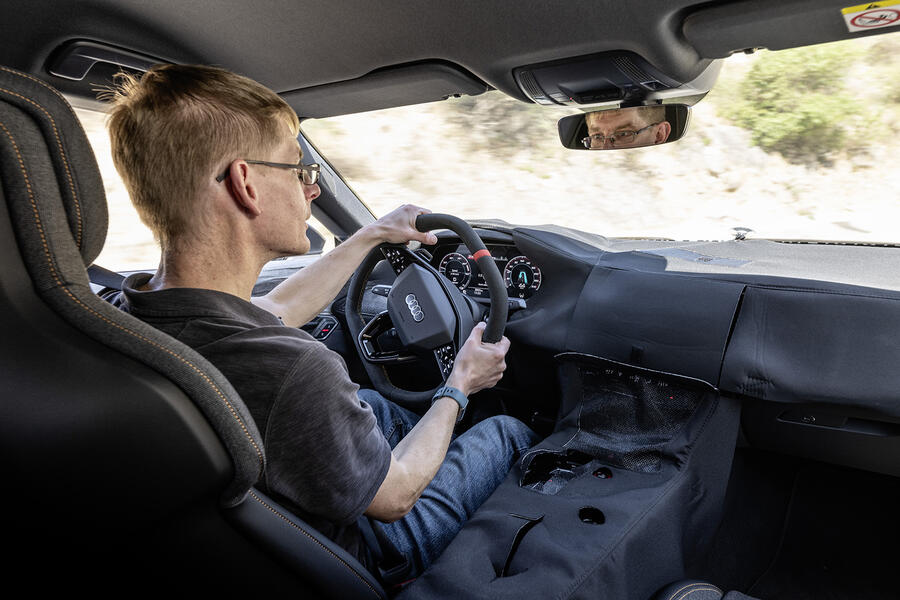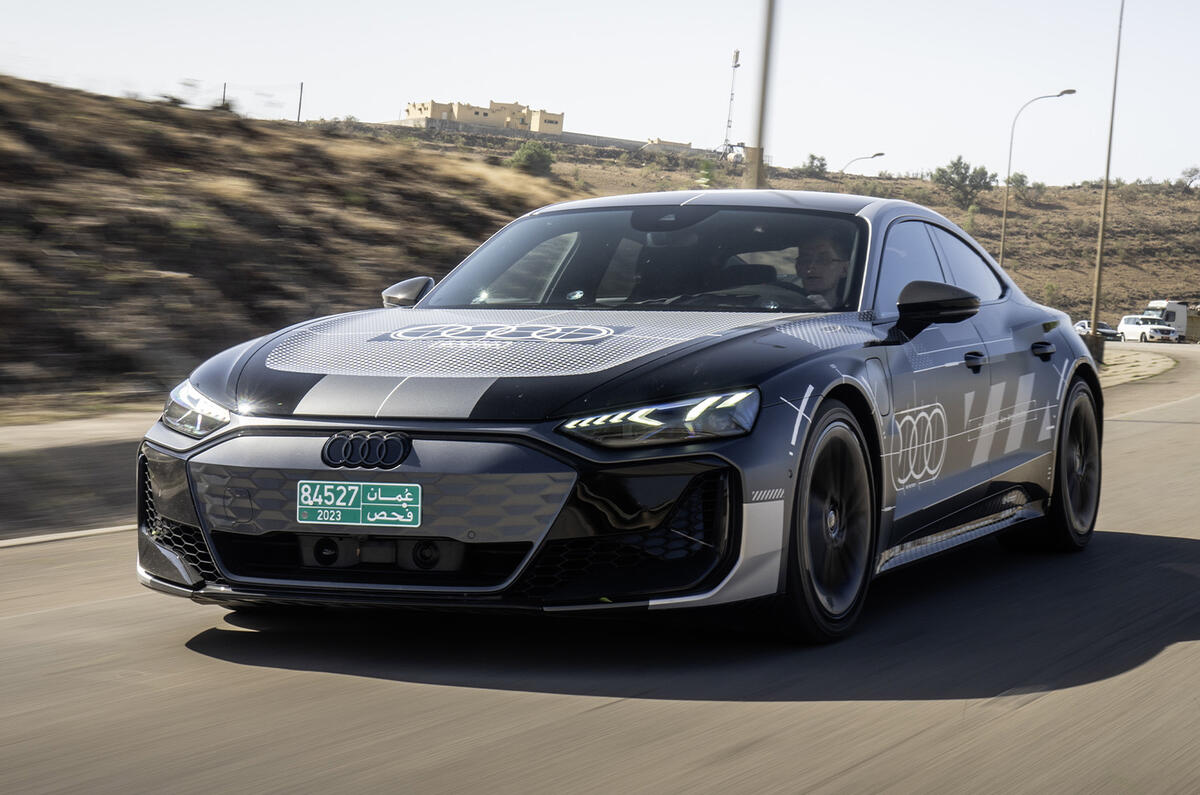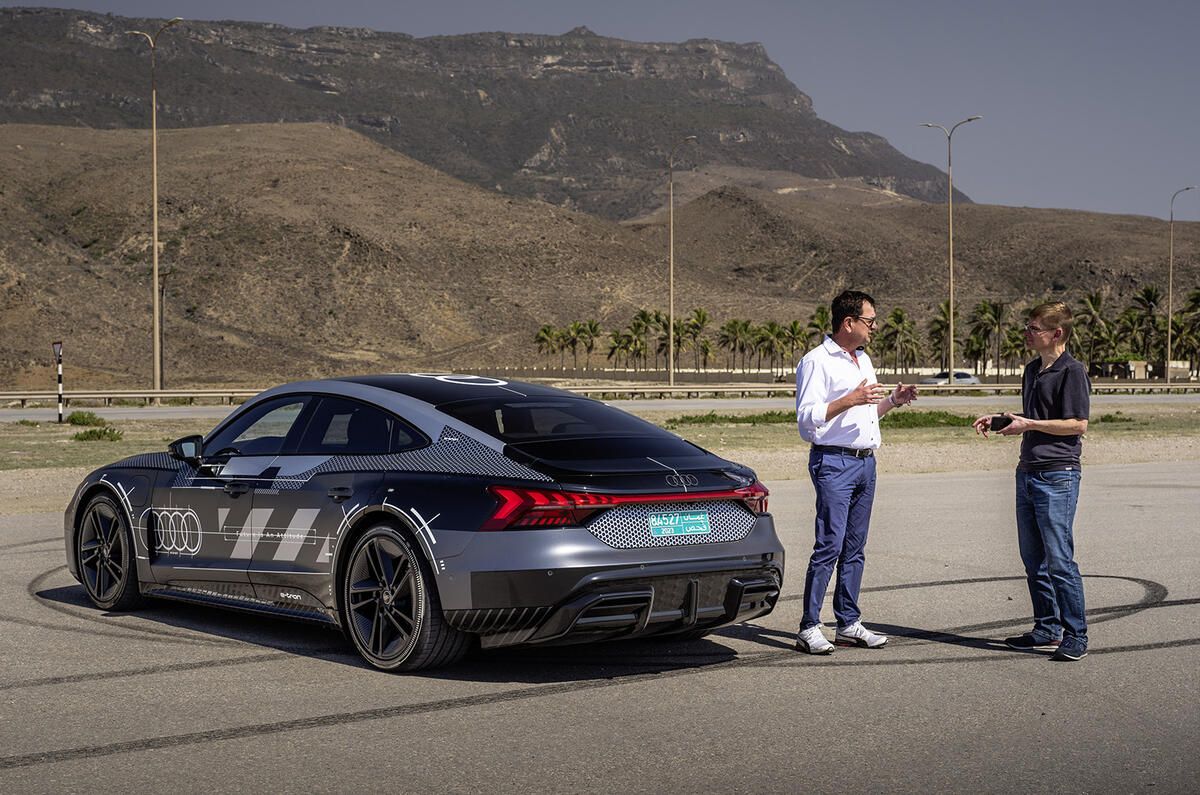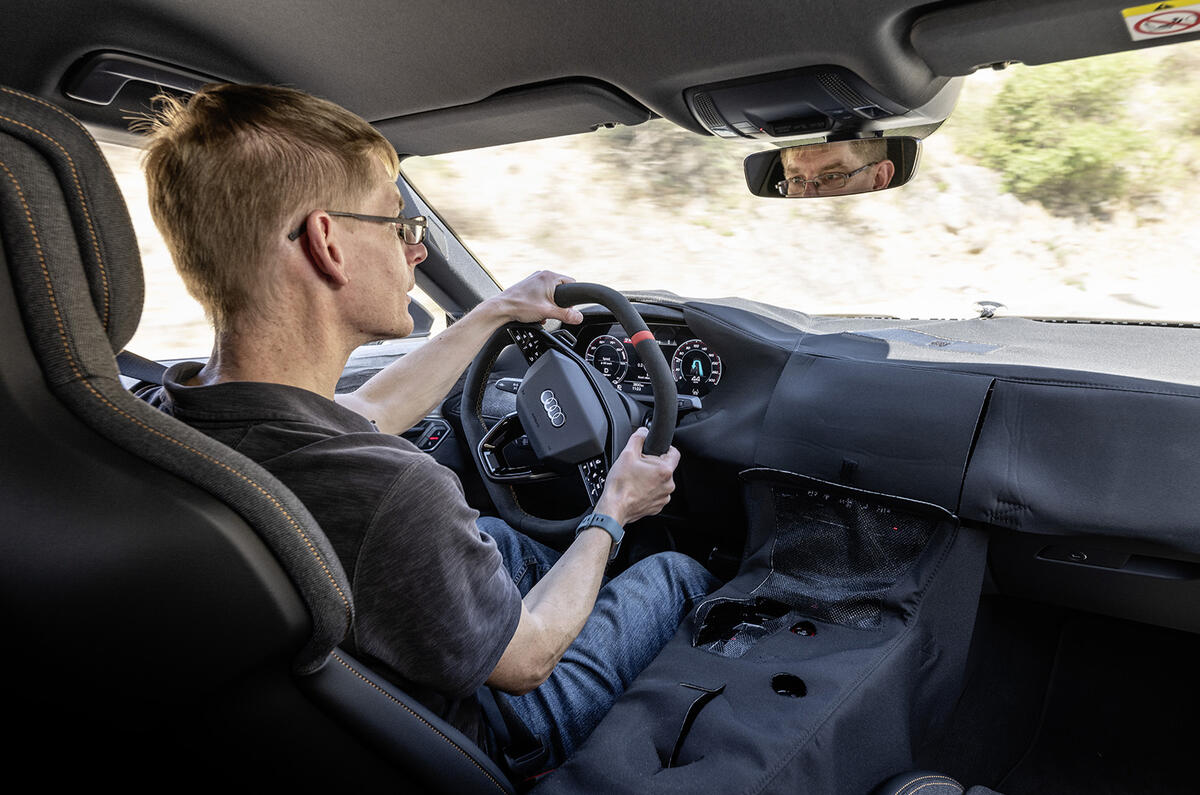Sometimes we will drive a new car under embargo, securing early access in return for not writing about it until a certain date. Usually, that’s only a few days or so after the drive, but on occasion, event logistics and launch cycles lead to a gap of a few weeks.
In the case of this Audi E-tron GT prototype, the embargo was so long that I actually drove it back in 2023. Normally we wouldn't bother you with the intricacies of embargo timing, but I mention it here because it has created an unusual situation: I know more about this car now than I did when I drove it. I think.
Back in the heady days of last December (Merry Christmas, by the way), Audi’s engineers were tight-lipped about the technical details of the revamped E-tron GT.
That’s understandable: these were prototypes and development was still ongoing. I know this because a clipboard-armed engineer asked lots of questions to gather feedback.
Audi confirmed that there had been changes to the powertrain, battery system, suspension, driving dynamics and charging speeds but would share no numbers and few technical details.

It wouldn’t even confirm which model I was driving, although it was absolutely the range-topping RS, likely in new Performance guise. “We don’t start with the entry-level versions,” said Stephan Reil, R&D chief at Audi’s Neckarsulm site, who ‘supervised’ me from the passenger seat.
Reil is one of the technical leads for the E-tron GT, which you should take as a good sign because he was previously responsible for the R8 supercar.
Since December, Audi sibling firm Porsche has launched an updated version of its Taycan, with which the E-tron GT shares its extensively updated J1 platform.
And while Audi and Porsche develop the cars separately to very different briefs, the Taycan upgrades give a pretty strong indicator of where work has been done on the E-tron GT.
This EV has been a popular addition to the Audi line-up, with more than 30,000 examples sold since 2021 - more than a third of which were in ultimate RS guise.
New Audi RS E-tron GT technical details
That popularity is why Audi hasn't messed with the design: not even the weird camouflage wrap can hide that the exterior styling is largely unchanged. Instead, the focus of the upgrade work on the E-tron GT has been about making it better deliver on the 'grand tourer promise that its suffix makes.
There are new motors at front and rear and new battery options. The Taycan now offers 82kWh and 97kWh packs, with nickel-manganese-cobalt cell chemistry that can discharge and charge more quickly.

Expect similar here, and they won't just increase the range substantially from the previous version's 264 miles to likely well past 300 miles; also expect the rapid-charging rate to rise from 270kW to 320kW.
Reil confirmed the RS E-tron GT has more power but not how much. However, as before, there will be room between the range: topping Audi and its more sporting Porsche sibling, and with the new Taycan Turbo S making 764bhp, somewhere around 700bhp feels right for the new RS.
What's the new Audi RS E-tron GT like to drive?
It's clear from behind the wheel that the E-tron GT is hugely potent, with boundless accelerative enthusiasm and way more power than I had the confidence to deploy on winding, camel-strewn, Omani mountain roads.
Of course, premium EVs being ridiculously fast isn't news any more: of more interest is what Audi's engineers have done to make the E-tron GT better in corners - and happily, this is the bit they would actually talk about.
The big development is a new active suspension system (equivalent to the new Porsche Active Ride system on the Taycan), which uses hydraulic actuators to adjust each wheel to smooth out the ride.
The system uses car data and sensors that 'read' the road to automatically adjust for bumps and dips, while in sportier modes, it can even tilt the car into corners or pitch the body forward and backwards.

It's subtle but effective, with Reil saying much focus was put on broadening the E-tron GT's performance window. So in the standard driving modes, it will do more work to smooth the ride for a relaxing, grand touring experience; and in the sportier modes, it will stiffen up and work to aid turn in and handling.
On a bumpy test route, the potential of the system was clear, and it helped disguise much of the E-tron GT's still-considerable weight (even if it goes on the same weight-loss diet as the new laycan, this is still likely to be a two-tonne car). That broader window should serve the RS E-tron GT well, given the duality of its brief.
From this early taste, then, this feels like an effective update that should boost the E-tron GT's already considerable appeal.
And there's one good sign that it remains a memorable car: I still remember details about driving it from all those months ago.
Audi RS E-tron GT prototype
Price £130,000 (est)
Engine Two permanent magnet synchronous motors
Power 700bhp (est)
Torque 750lb ft (est)
Gearbox 1-spd reduction gear (f), 2-spd automatic (r), 4WD
Kerb weight 2150kg (est)
0-62mph 3.0sec (est)
Top speed 155mph (est)
Battery 97kWh (est)
Range, economy 340 miles (est), 3.5mpkWh (est)
CO2, tax band 0g/km, 2%
RIVALS BMW i4 M50, Porsche Taycan Turbo





















Join the debate
Add your comment
Still no Avant yet??
Can't wait for the tech to filter down to the lesser models like the cars you and I drive for work or other commitments.